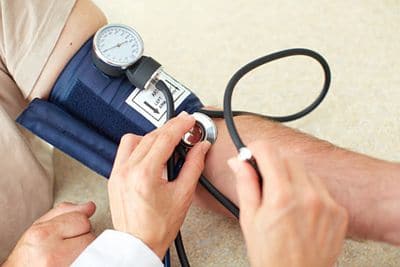
The most notable reason why these techniques have become increasingly popular lately is because they can offer fast, cheap and efficient pain relief. Some techniques, such as acupuncture, are particularly useful for those who suffer from various chronic pain conditions. Below is a brief overview of the most popular alternative medicine techniques.
Acupressure is an ancient technique that is somehow related to acupuncture – the sole difference is that in this case, no needles are required. It is believed that energy flows through specific points located on the human body, and if that flow is impaired this can lead to negative effects on the mental, physical and emotional well-being of the patient. Acupressure can restore that energy flow by manipulating these particular points.

Acupuncture is based on the same principle as acupressure, and it involves using thin and long needles to stimulate various points along the skin in order to correct imbalances in the Qi (energy) flow. In some case, heat or laser light is used in conjunction with these needles, for the best results. Acupuncture has long been a form of alternative medicine, and it is a very important component of traditional Chinese Medicine. It is commonly used for pain relief.
Commonly referred to as natural hormone therapy, the bioidentical hormone replacement therapy is a form of alternative medicine that involves using hormones that are identical to the endogenous ones, on a molecular level. BHRT is commonly used for managing the symptoms of andropause and menopause.
Learn more about our Bioidentical Hormone Replacement Therapy services.
Chiropractic care is a form of alternative medicine that aims to prevent and to address different disorders related to the musculoskeletal system. Manual therapy (and manual spinal manipulation) is the most commonly used technique in the field of chiropractic care, as it is believed that any misalignment of the bones can take its toll on the patient’s general health.
Functional medicine is a form of treatment that is based on a holistic approach. Practitioners try to address the root of the problem, rather than the symptom. Functional medicine practitioners believe that there is a strong link between the endocrine systems, the immune system and the gastrointestinal system.

Also known as herbalism, herbal medicine involves the use of various plants for medicinal purposes, and it is one of the oldest (and most widely spread) forms of alternative medicine. Although herbal medicine relies mainly on the use of herbs, plants and roots, it is not uncommon for it to include bee products and other animal-derived products.
The concept of holistic medicine is based on the principle that medicine should treat the patient as a whole, as opposed to addressing the malady itself. There are many techniques used in the field of holistic medicine, and two of the most notable ones include metabolic therapy or colon therapy.
Invented back in the 18th century, homeopathy is one of the most modern branches of alternative medicine and it involves the use of various remedies extracted from mineral, animal, plant or synthetic sources.
According to lifestyle medicine practitioners, most health problems occur due to an unhealthy and unbalanced lifestyle. This is why this form of alternative medicine involves the use of medical, environmental and behavioral principles to address these medical problems. Dieting and exercising are two of the most commonly used treatments in the management of lifestyle-related diseases.
Massage therapy is a form of treatment that involves applying structured and moving pressure on the body (either manually or automatically) in order to help the patient relax, to improve the blood flow to the peripheral areas, and to induce a general feeling of well-being.
Just as the name implies, nutritional counseling is a form of alternative medicine technique which revolves around the principle that an unhealthy diet that lacks vital nutrients and minerals is the culprit behind many diseases, such as diabetes. Practitioners often recommend adding or removing certain foods from the diet, to help patients manage their health.
Also known as physiotherapy or PT, physical therapy is a form of treatment designed to treat physical impairments and to improve one’s flexibility and mobility through regular exercises.
Reiki is a century-old technique used to help patients let off the steam and to promote healing, from inside out. The practitioner places his or her hands on the patent, which is believed to trigger an energy transfer that has the positive effects detailed earlier.
Relaxation therapy involves a combination of procedures and methods designed to help the patient relax. This form of therapy is often used for alleviating pain, as well as for managing stress, anxiety and depression.

Sleep therapy is a form of alternative medicine that helps the patient manage a variety of ailments through sleep. It is known that the lack of sleep can increase the risk for heart disease, stroke, high blood pressure, diabetes and many other conditions, and this is precisely what this form of therapy aims to prevent.

In the beginning stages of hypertension, patients may not have any symptoms; however, damage to the heart and blood vessels still occurs. If blood pressure isn’t controlled, patients can suffer from a heart attack or stroke. Generally, blood pressures slowly rise over a period of time. Luckily, blood pressure is easily monitored.
Many hypertensive people exhibit no symptoms. Others may notice they have a dull headache that is not relieved with over the counter pain medications. Patients with hypertension may also experience dizziness or nosebleeds. Usually these symptoms do not occur until blood pressures is extremely high and life threatening.
Normal blood pressure ranges are below 120/80. During the early stages of hypertension, called prehypertension, blood pressure runs between 120/80 and 139/89. When blood pressure levels get higher than 140/90, patients are considered hypertensive. People with hypertension may experience shortness of breath, chest pain and blurred vision.
There are two types of hypertension- primary hypertension and secondary hypertension. Primary hypertension has no discernable causes. This type of hypertension gradually develops over a period of years. Secondary hypertension appears suddenly and is a result of a medical condition.
Secondary hypertension has many causes. The list of medical conditions that can cause hypertension is quite large. Kidney problems and renal failure can cause many people to develop hypertension. Thyroid problems and adrenal gland tumors may also raise blood pressure. There are also congenital birth defects that can cause hypertension. Medications, alcohol and illegal drugs can raise blood pressure. Medications including over the counter pain relievers, cold medicines, birth control pills and decongestants can increase blood pressure and result in hypertension.
As patients age, the risk for high blood pressure increases. Men tend to develop high blood pressure around 45, while women tend to develop
Patients with a family history of hypertension or who are overweight are more likely to be hypertensive. Those who are not physically active normally have a higher heart rate. As heart rates climb, the more pressure builds up in the blood. Stress along with chronic medical conditions such as sleep apnea and kidney disease also increase the risk factors.
Consuming tobacco products, excessive amounts of sodium and alcohol can also increase the risk of hypertension. It is also caused by deficiencies in potassium and vitamin D. Potassium helps the body to balance sodium in the body while vitamin D is necessary for enzyme production in the kidneys.
Hypertension, also known as high blood pressure, can cause a myriad of health problems, including heart attack, stroke and kidney failure. To help protect against hypertension, patients should exercise, eat a nutritious diet and avoid medications that can raise blood pressure. Patients should monitor their blood pressure annually.
Are you suffering from high blood pressure or hypertension. Please call us at (571)529-6699 and set up an appointment with our integrative physician.
We gladly serve Northern Virginia including Fairfax, Loudoun, Alexandria, and Prince William counties, Washington DC metro area, and Maryland.
Your BMI score is (Display BMI Score)
Your BMI is in a normal/healthy range for your height (Display Entered HEIGHT) and weight (Display Entered WEIGHT). You are most likely within the recommended weight range for someone of your height, age, and build and consequently are at a lower risk of developing chronic illnesses.
To ensure that you remain at a healthy weight, continue to eat a well-balanced diet that includes plenty of fresh vegetables and fruits, healthy fats, whole grains, low fat dairy products, nuts, beans, eggs, fish, poultry, and lean meat. In addition to a healthy diet, get at least 30 minutes of moderate intensity exercise at least five days a week. For best results, also include strength training exercise at least two days a week.

Your BMI score is (Display BMI Score)
Your BMI is in an Overweight range for your height (Display Entered HEIGHT) and weight (Display Entered WEIGHT).

Typically, those with a higher BMI have more body fatness. Being overweight, you are at an increased risk of a number of health conditions and diseases, including:
It is advisable you speak with your integrative healthcare provider about the best weight loss approach for your unique health, dietary needs, and physical activity levels. Our health coach can work with you to set actionable and realistic goals and help you get started on your journey to optimum health.

For healthy and sustainable weight loss, you may need a combination of increased physical activity and calorie restriction. When substantial weight loss is necessary to reduce the risk of serious illness or death, significant lifestyle changes must be embraced. This includes some stress management techniques like yoga, tai chi, meditation, deep breathing exercises, and guided imagery.
Exercise is essential when it comes to weight loss. As with any activity, you should begin slowly and work your way up to more challenging fitness routines. Experts typically recommend low impact cardio exercises like walking or swimming. In addition to aerobic exercises, try to incorporate strength training exercises into your workout routine.
Having an elevated BMI increases your risk of illness and disease. Reducing your weight through diet and exercise decreases your risk of disease. In addition to this, reducing your overall weight increases your energy levels. As your energy levels increase, you will be able to perform more exercise, which will further improve your weight loss efforts, and as you begin to lose weight, you will feel better about yourself and your self-esteem will begin to improve
Your BMI score is (Display BMI Score)
Your BMI is in a Obese range for your height (Display Entered HEIGHT) and weight (Display Entered WEIGHT).

Typically, those with a higher BMI have more body fatness. Being obese, you are at an increased risk of a number of health conditions and diseases, including:
It is advisable you speak with your integrative healthcare provider about the best weight loss approach for your unique health, dietary needs, and physical activity levels. Our health coach can work with you to set actionable and realistic goals and help you get started on your journey to optimum health.

For healthy and sustainable weight loss, you may need a combination of increased physical activity and calorie restriction. When substantial weight loss is necessary to reduce the risk of serious illness or death, significant lifestyle changes must be embraced. This includes some stress management techniques like yoga, tai chi, meditation, deep breathing exercises, and guided imagery.
Exercise is essential when it comes to weight loss. As with any activity, you should begin slowly and work your way up to more challenging fitness routines. Experts typically recommend low impact cardio exercises like walking or swimming. In addition to aerobic exercises, try to incorporate strength training exercises into your workout routine.
Having an elevated BMI increases your risk of illness and disease. Reducing your weight through diet and exercise decreases your risk of disease. In addition to this, reducing your overall weight increases your energy levels. As your energy levels increase, you will be able to perform more exercise, which will further improve your weight loss efforts, and as you begin to lose weight, you will feel better about yourself and your self-esteem will begin to improve.
Your BMI score is (Display BMI Score)
Your BMI is in a Underweight range for your height (Display Entered HEIGHT) and weight (Display Entered WEIGHT).

If is advisable you speak with your integrative healthcare provider about managing your weight for your unique health, dietary needs, and physical activity levels.
Our health coach can work with you to set actionable and realistic goals and help you get started on your journey to optimum health.